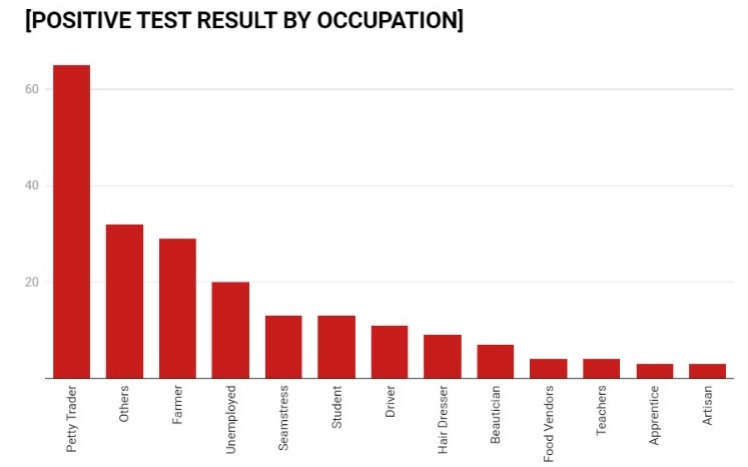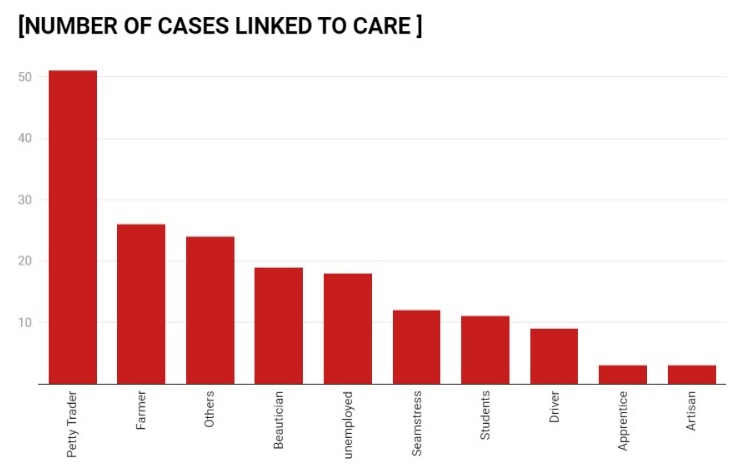
Since the early 1980s, Ghana has been confronting the effects of HIV/AIDS on its populace, striving to mitigate its impact. Over time, considerable efforts have been made to enhance awareness, improve treatment accessibility, and combat stigma surrounding the virus. Yet, challenges endure, particularly in meeting the diverse needs of occupational groups affected by HIV.
In a noteworthy revelation, the Ghana HIV and AIDS Network (GHANET) disclosed a significant finding: petty traders accounted for the highest number of HIV positive cases in 2023. This revelation follows the initiation of an innovative HIV self-testing Pilot Initiative, signifying a pivotal development in the country’s approach to HIV detection and prevention strategies.
Under the leadership of the National AIDS/STI Control Programme (NACP), Ghana Health Service (GHS), and Ministry of Health (MOH), GHANET spearheaded an initiative to revolutionize HIV testing accessibility and identify high-risk populations.
More on the initiative
This initiative, launched in July under the guidance of then Health Minister Kwaku Agyeman-Manu, garnered widespread acceptance for its proactive approach in tackling the HIV/AIDS epidemic. With an initial allocation of 140,000 testing kits from the National AIDS Control Programme (NACP), GHANET implemented a targeted distribution strategy.
Trained volunteers from Community Based Organizations (CBOs) played a crucial role in distributing 123,088 kits within local communities in the informal sector, while an additional 16,912 kits were designated for distribution at public events.
The distribution of testing kits encompassed over 50 different occupational categories, with students, petty traders, farmers, and other unspecified occupations emerging as primary recipients. Notably, petty traders received 20,390 testing kits, highlighting the susceptibility of this demographic to HIV transmission.

After the distribution phase, the use of testing kits revealed the prevalence of HIV across various occupations.
Out of the 239 confirmed positive cases, petty traders accounted for a significant 27.2%, highlighting the pressing need for focused interventions within the informal sector.
Farmers and individuals with unidentified occupations followed closely with 12.1% and 13% positive cases, respectively.
Moreover, the successful connection of 202 positive cases to medical care emphasizes the importance of prompt intervention and access to treatment.
Among the positive cases linked to care, petty traders constituted 25%, reaffirming the crucial role of healthcare provision within vulnerable occupational groups.

Despite the obstacles presented by the elevated HIV rates among petty traders, GHANET maintains its unwavering dedication to solidifying the progress made through the Pilot Initiative.
Acknowledging the importance of connecting previously unrecognized cases with treatment, GHANET stresses the necessity of involving additional stakeholders and expanding coverage to all regions of the nation.
Furthermore, the HIV self-testing Pilot Initiative in Ghana has not only revealed a concerning pattern but also underscored the significance of proactive testing and prompt intervention in addressing the HIV/AIDS crisis.
Through leveraging these insights and enacting interventions, Ghana is ready to make progress towards fulfilling its public health objectives.
Read Also: MoFA: We Haven’t Approved Selling Maize and Soybean Goods



